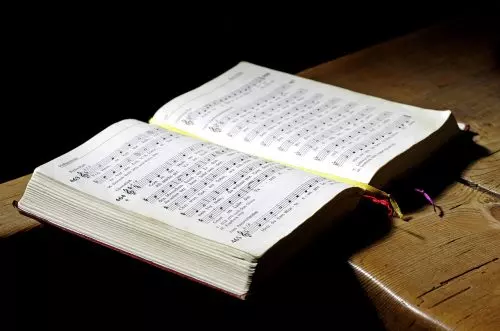Music and prayer have long been recognized as powerful forces that can profoundly impact people’s lives. Whether experienced individually or in a communal setting, these practices can soothe souls, uplift spirits, and connect people to something greater. This article will explore the profound effects of music and prayer and how they can enhance your well-being and bring about a sense of peace, comfort, and transcendence.

The Healing Power of Music
Music has a unique ability to touch people on a deep emotional level. It can evoke memories, elicit strong emotions, and create a sense of unity and connection. Scientific research has shown that music profoundly impacts our physical, mental, and emotional well-being. One of the most remarkable aspects of music is that it can promote relaxation. Calming music can lower
blood pressure, reduce heart rate, and decrease levels of stress hormones. It has been used in various healthcare settings to help patients manage pain, alleviate anxiety and depression, and improve overall mood.
Moreover, music has the power to inspire and uplift people. It can motivate people to push through challenges, boost energy levels, and enhance productivity. Many athletes, for example, use music as a form of motivation and performance enhancement. Music also can foster a sense of community and social connection. Whether singing in a choir, participating in a music therapy session, or attending a concert, music brings people together, allowing for shared
experiences and a sense of belonging. If you create religious songs, you can monetize your music to generate income and support your artistic endeavors. Or you can also donate the proceeds to the church.
Prayer as a Source of Comfort and Guidance
Prayer is a profoundly personal and spiritual practice that is a way of communicating with a higher power or expressing our deepest thoughts, desires, and intentions. For many individuals, prayer is a source of comfort, solace, and guidance. Prayer provides inner peace and tranquility, allowing us to surrender our worries and burdens to a higher power. It can offer hope and reassurance, especially during difficult times or adversity. Prayer has been found to reduce anxiety, promote emotional well-being, and improve overall mental health.
Moreover, prayer can foster a sense of gratitude and cultivate a positive outlook on life. By focusing on blessings and expressing gratitude, people shift their attention away from negativity and develop a more optimistic mindset. In addition to its benefits, prayer can also strengthen the bonds within a community. Many religious traditions encourage communal prayer, where individuals come together to pray. This shared experience creates a sense of unity, support, and connection.
The Synergy of Music and Prayer
When music and prayer are combined, a powerful synergy is created. Music can enhance the prayer experience by providing a melodic and rhythmic backdrop that deepens the connection with the divine. Hymns, chants, and spiritual songs have been used in religious rituals and ceremonies for centuries, enriching the worship experience and creating a sense of reverence and awe. Music can also amplify the emotional impact of prayer. Certain melodies and harmonies can evoke emotions, from joy and gratitude to introspection and reverence.
Music in religious settings can elicit a collective emotional response, fostering a sense of unity and shared spirituality. Furthermore, music can serve as a medium for expressing prayers and aspirations. Many religious traditions have sacred texts or hymns sung as worship. By combining the power of music and the intention of prayer, people can create a significant and transformative experience.
Incorporating Music and Prayer into Daily Life Incorporating music and prayer into your daily life can bring numerous benefits and enrich your spiritual journey. Here are some practical ways to integrate music and prayer into our daily routines:
1. Create a Sacred Space: Designate a specific area in your home where you can pray and listen to uplifting music. Decorate this space with items that hold spiritual significance to you, such as candles, religious symbols, or inspirational quotes. This space can serve as a peaceful sanctuary for reflection and connection.
2. Morning Rituals: Begin your day with a few moments of prayer and meditation. Set aside time to express gratitude, set intentions for the day, and connect with your spiritual beliefs. You can accompany this practice with soft instrumental music or soothing chants to create a serene atmosphere.
3. Music during Daily Activities: Incorporate music into your daily activities such as cooking, exercising, or commuting. Choose music that uplifts your spirit and resonates with your beliefs. Sing along or hum to the melodies, allowing the music to enhance your mood and bring joy to your tasks.

Remember, the power of music and prayer lies in their ability to uplift, heal, and connect you to something greater than yourself. By incorporating these practices into your daily life, you can cultivate a more profound sense of spirituality, find solace in challenging times, and experience
the transformative power of music and prayer. Whether shared individually or in a communal setting, they can uplift our spirits, promote healing, and nurture our spiritual well-being. So, embrace the power of music and prayer and allow them to guide you on your spiritual journey.

